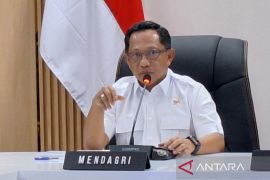The expected regional instrument needs to ensure the protection of legal and illegal migrant workers and their children as recommended by the United NationsJakarta (ANTARA News) - Trade unionists and legal aid activists of Indonesia, Malaysia, and Singapore urged 10 ASEAN member states here Monday to adopt a legally binding regional framework instrument on the protection and promotion of migrant workers` rights.
The calls were echoed by Restaria Hutabarat, Roma Hidayat (Indonesia), Sinapan Samydorai (Singapore) and Vivian Chong (Malaysia) in response to the fourth meeting of ASEAN Committee on the Implementation of ASEAN Declaration for the Protection and Promotion of the Rights of Migrant Workers (ACMW) here on Monday and Tuesday.
Restaria Hutabarat, Jakarta Legal Aid Foundation`s activist, said, due to its ASEAN chairmanship position, Indonesia had a good chance to ensure the protection of migrant workers in the regional organization`s member countries.
An effort to reach a sound bilateral agreement on this issue remained weak due to the receiving and sending countries` socio-economic differences, she said.
"That is why, a legally-binding regional instrument for promoting and protecting the human rights of migrant workers is indispensable," Hutabarat said.
She said the ACMW was again encouraged to realize the legally-binding regional instrument and it would not be a threat for all ASEAN member countries` sovereignty.
Sharing Hutabarat`s views, Foreign Domestic Workers Program Officer of Coordination of Action Research on AIDS and Mobility (CARAM) Asia Vivian Chong said that legally binding regional instrument should have been made effective within ASEAN member countries by this year.
The expected regional instrument needs to ensure the protection of legal and illegal migrant workers and their children as recommended by the United Nations, she said.
However, such instrument might not be easy for the Malaysian and Singaporean governments because they did not want to get any consequence of failing to meet the legally binding rules of the game, she said.
Vivian Chong also touched on the causes of legal domestic workers to become "undocumented". She said they became undocumented because their employers did not extend their employees` visas.
Instead of helping their workers` visa extension, the employers called local police to arrest them, she said adding that the issue of undocumented workers was not only related to employment but this was also a humanitarian issue.
In the issue of domestic workers in Malaysia, Vivian Chong said the country`s employment act just regarded domestic workers as "domestic servants". This act was actually the legacy of British colonial era, she said.
Convenor of Task Force on ASEAN Migrant Workers Sinapan Samydorai said his party supported a legally binding regional agreement on the ASEAN framework instrument for the sake of better protection of migrant workers` rights.
"Follow-up to such multilateral agreement could include Memorandum of Understanding or Bilateral Agreements on specific issues like labor trafficking and undocumented workers to secure the protection and respect of the rights of the migrant workers," he said.
With this binding agreement, the problems of undocumented migrant workers and their children, as well as those who became stateless in Malaysia could not resolved, he said.
Malaysia and Singapore are the biggest recipients of migrant workers from such countries as Indonesia and the Philippines. But, those migrant workers, especially Indonesian domestic workers, are not always treated fairly.
ASEAN comprises Indonesia, Brunei, Malaysia, Singapore, the Philippines, Thailand, Laos, Cambodia, Myanmar and Viet Nam.(*)
Editor: Heru Purwanto
Copyright © ANTARA 2011










